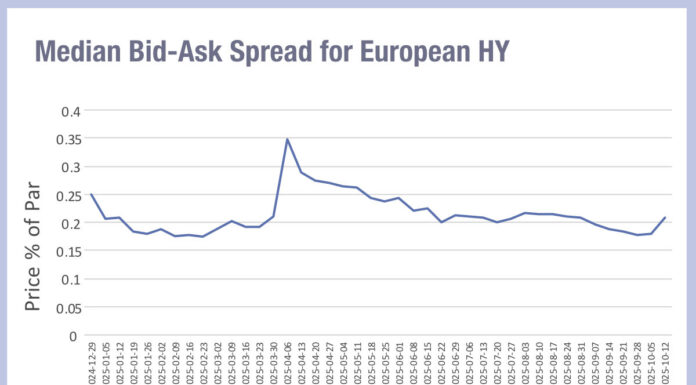By Pia Hecher.
Mutual market access scheme Bond Connect, the platform linking investors from Mainland China and overseas, implemented real-time delivery-versus-payment (RDvP) and introduced a service for block trade allocation this week. It now fulfils two out of three conditions for the Bloomberg Barclays index inclusion.
“We expect 100% that index inclusion will now happen. In the next six months we are going to onboard thousands of accounts. We also expect volume will grow closer to index inclusion, but not immediately,” says Julien Martin, general manager at Bond Connect Company and managing director at Hong Kong Exchange (HKEX).
RDvP, a mechanism that allows payment and delivery of securities to happen at the same time, is supposed to reduce settlement risk by trading parties. Because RDvP is a regulatory prerequisite for participation in financial markets in many jurisdictions, its implementation expands Bond Connect’s audience.
Block trade allocations will enable asset managers to distribute block trades to a number of client accounts pre-trading. With the help of its new facility, Bond Connect expects buy-side investors who are undertaking trading strategies to save time on managing blocks.
Bond Connect was set up by the People’s Bank of China (PBC) and the Hong Kong Monetary Authority (HKMA), establishing a connection between Mainland China and Hong Kong Financial Infrastructure Institutions, allowing investors to trade bonds between mainland and Hong Kong bond markets electronically without needed the investor status and quotas associated with previous access models. It opened on 3 July 2017.
The China Foreign Exchange Trade System & National Interbank Funding Centre (CFETS) and Hong Kong Exchanges and Clearing have worked with the bond trading platform operator Tradeweb to offer connectivity to overseas investors. That has allowed them to take a stake in the mainland bond market, distribute renminbi assets and supervise associated risks through Bond Connect.
Writing in The DESK in October 2017, Li Renn Tsai, Tradeweb head of Asia, noted that the backdrop to Bond Connect’s development is that Chinese policy makers want to attract foreign investment in the Chinese Interbank Bond Market (CIBM), access to which was previously troubled by delays and uncertainty, as Tsai argued. The initiative is likely to ease the inclusion of Chinese debt instruments into global bond indexes.
China is preparing for an anticipated volume growth, which it hopes will result from a rise in foreign investment. At US$9.6 trillion, China’s bond market is the world’s third largest. Its size is expected to double within the next ten years, Tsai explained.
©Markets Media Europe 2025












